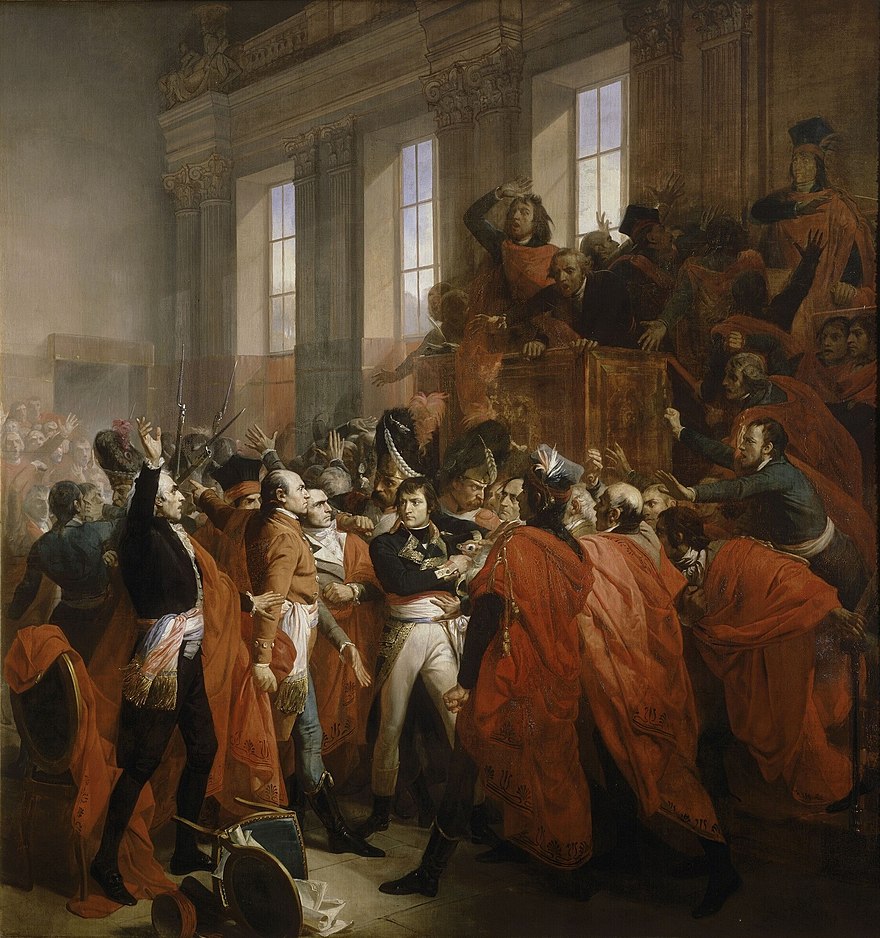1798
Conquering Egypt, Napoleon Bonaparte mounts an elaborate celebration in Cairo to mark the anniversary of the founding of the French Republic in 1792. A Triumphal Arc is decorated with scenes from the Battle of the Pyramids. The extravaganza is flattering to the French, but is insulting to Egyptians.

















